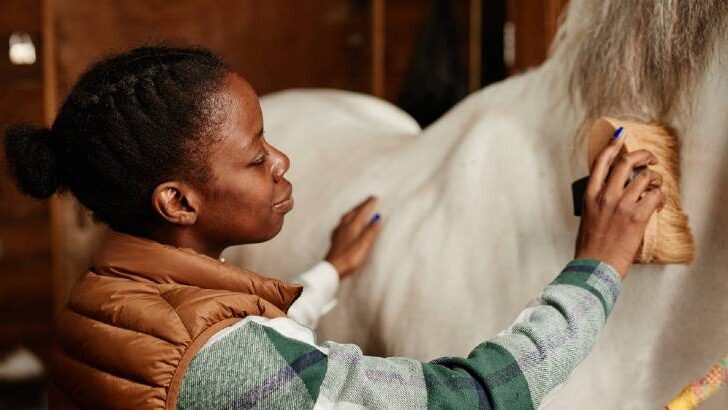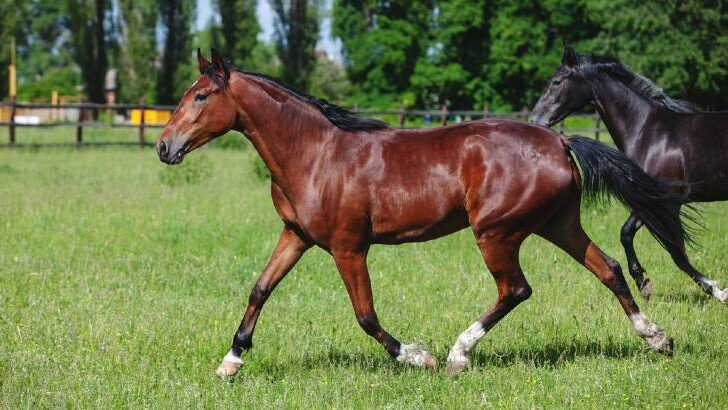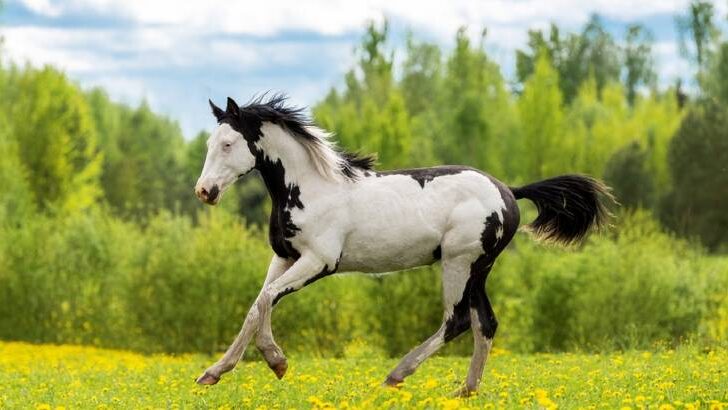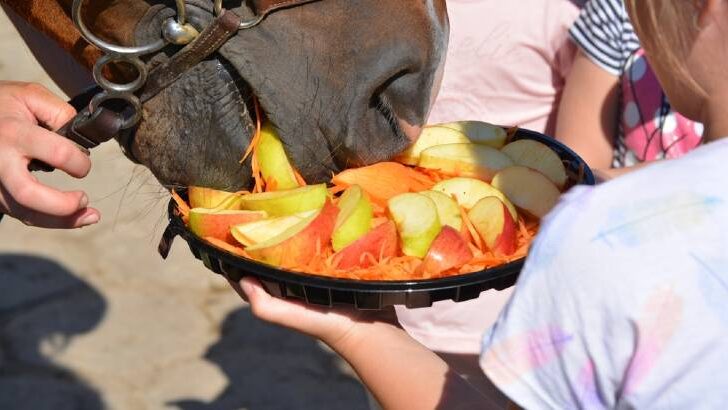Affiliate Disclaimer
As an Amazon Associate I earn from qualifying purchases. It helps me keep the website going. Thank you for your support.
Having a horse or two to call your own is every horse lover’s dream. However, owning a horse is a massive commitment, both in time and money. Leasing a horse is a great starting point to learn more about horse ownership and further your skills. But, how do you know if you are ready to lease a horse?
There are lots of things to consider before you are ready to lease a horse. You must have basic riding and horse handling skills, as well as a basic knowledge of horse care. Time is another important factor, to make sure you are able to care for the horse properly. Lastly, you need to make sure the cost of the lease fits into your budget.
Leasing a horse is a great way to learn about horse ownership. However, even though it is not as big a commitment as buying your own horse, leases come with responsibilities. Read on to learn more about how to decide if you are ready to lease a horse.
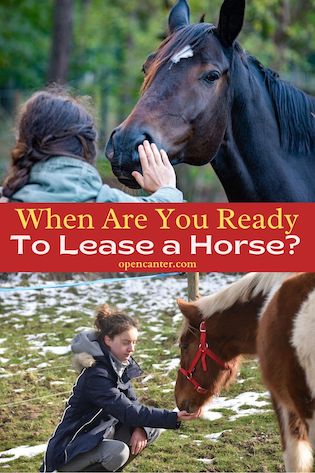
What Does ‘Leasing a Horse’ Mean?
When you lease, you have all the joys and responsibilities of horse ownership, but without the initial purchase cost. You are responsible for the horse’s care and exercise, but without having to own the horse yourself.
Leasing a horse is a great way to decide if you are ready to buy a horse. A lease gives you a taste of what horse ownership is like. If you decide that horse ownership is not for you, you can simply terminate the lease. You will not have to worry about finding the horse a new home.
There are two main types of leases: partial and full. A partial or half lease means that you share the horse with another rider or the owner. This means that you are able to ride, and are responsible for the horse, on certain days of the week.
A full lease means that you are the only person who rides and cares for the horse. This type of lease is the most similar to horse ownership. The owner may still be indirectly involved in the horse’s care; however, you are responsible for daily care.
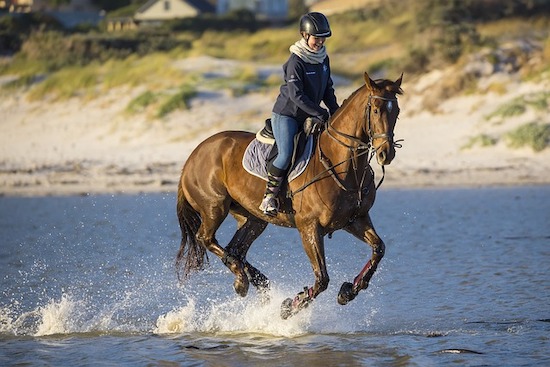
When am I Ready to Lease a Horse?
There are a few things to think about when you are weighing up whether you are ready to lease a horse. Here are some of the main things to consider…
1) How Long Have You Been Riding?
Generally, it is recommended that you will have been riding for at least one year before committing to a lease. This gives you enough time to learn the basic skills required. It also means that you will have had time to decide if riding is something that you want to commit to.
Most riders will have learned to walk, trot and canter within their first year. They will usually have enough skill to be able to stay balanced on the horse. Unbalanced riding can make horses sore, not to mention you risk falling off! Additionally, you need to be able to control the horse. You must be able to ask the horse to go, stop and turn.
Once you progress to leasing a horse, you might start riding without your instructor. You should still keep your weekly lesson, however during the week you might be riding without them. You need to have enough riding skills to stay safe during these rides.
Talking to your instructor before committing to a lease is recommended. They will be able to tell you if you are ready or not. They may also be able to recommend a suitable horse for you to lease.
2) What Experience do You Have in Horse Handling and Stable Management?
You also need horse handling and stable management skills before you are ready to lease a horse. This is because most leases will require that you take full or partial care of the horse. While you do not need to know everything, there are some key basic skills.
You must know how to catch a horse in the field, lead it, and tie it up. You need to be confident in completing these tasks as you will likely do them each day. Also, you must know how to groom, rug, and saddle the horse safely.
Grooming a horse includes the basics of brushing, combing the mane and tail, and cleaning out the hooves. If you do not groom the horse properly, it can lead to skin diseases or sores. You should also know how to wash and dry a horse, depending on your climate.
If you want to ride, you must also know how to saddle your own horse. As well as how to put the tack on the horse, you must also know how to check it. Making sure your saddlery is in good repair and fits correctly reduces the risk of accidents. It also reduces the risk of making the horse sore.
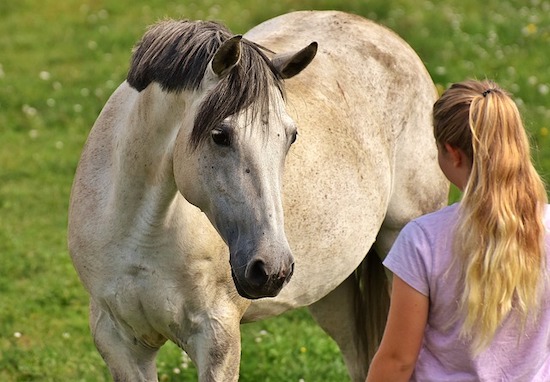
3) How is Your Knowledge of Horse Health?
Learning the basics of health care is an important one. This includes taking vital signs and knowing behavioral indicators of illness or injury. This is important as it will mean you can identify when your horse is not feeling well and get assistance.
For example, you need to know the standard indicators of a horse who has colic. These include repetitive rolling, looking around or kicking at their belly, raised respiration rate, and being unwilling to eat. Colic is an equine emergency that requires urgent attention.
If you are unable to recognize the basic signs of equine emergencies, you are putting the horse’s life at risk. In some severe cases, it is only a matter of hours between life and death. Some equine emergencies include colic, lacerations, eye injuries, choke, respiratory distress, or a downed horse. (source)
You must also know how to tell if a horse is lame. You do not want to be riding a lame horse, as they are in pain. Lameness is generally identified if the horse looks like it is limping, or bobbing its head unusually. They might also be reluctant to move.
4) Do You Understand a Horses Day to Day Needs, Such as Feeding?
There is a lot of information out there about horses, and nobody in the world can say they know everything. While you do not need to learn everything there is to know, you must have some basic knowledge.
Most of this knowledge is based on basic horse care and health. Leasing a horse means that you are responsible for its care, either all the time or on certain days. You need to have enough knowledge to make sure the horse is properly cared for.
It’s also important to know a little about feeding. Usually, the owner of the horse will be able to tell you about the feed the horse normally eats. You won’t have to decide what to feed the horse, as the owner usually decides that for you. You may, however, have to purchase feed in line with what the owner sets out.
Make sure that you know the dos and don’ts of feeding. For example, horses need lots of fiber in the form of hay or grass. However, they should never be fed grass clippings from a lawnmower. Also, make sure you are familiar with the poisonous plants in your area.
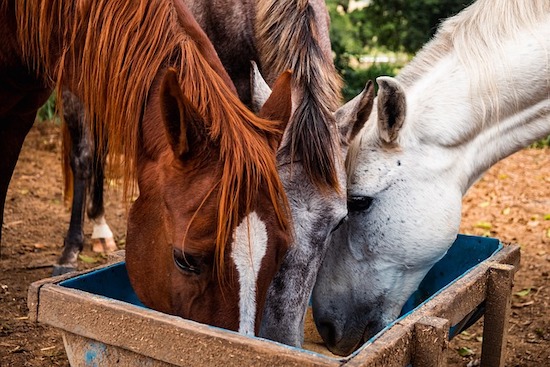
5) Do You Have Good Idea of How Much Time You Can Commit?
Before committing to a lease horse, you need to make sure that leasing is the right option for you. It requires both time and money, in amounts depending on the type of lease. For example, in a partial lease, you are responsible for the care of the horse on certain days.
Your schedule must allow you to be at the barn on those days to ride and care for the horse. You can read more about the different types of horse leases that you can choose from here.
In a full lease, you are responsible for the horse’s care, every single day. If you are unable to make it to the barn every day, you might need a friend to help you. You could also pay someone to take care of your horse on the days you cannot be there.
However, if you cannot be there every day, you must decide if a full lease is worth it. Perhaps a partial lease is more appropriate, or sticking to weekly lessons if your schedule is too busy. There is no point leasing a horse, if you do not have time to spend riding and caring for them.
Available finances are another important consideration. Keeping horses is an expensive pursuit and leasing, while often cheaper than buying a horse, costs money. While some leases don’t charge a leasing fee, you might be responsible for costs like feed, board, or the farrier.
Some owners will cover these costs themselves but will charge you a leasing fee. On top of these costs, you will still be required to pay for your own lessons. Some owners may also require you to take out equine insurance.
Some lease horses come with their own saddlery and rugs. Whereas with others you will be required to purchase these items. You will also need to purchase your own equipment, namely a helmet and riding boots.
Final Thoughts
Deciding if you are ready to lease a horse is a big decision. Leasing a horse can be a rewarding first step on your way to buying your own horse. It is also a great way to develop your skills as a rider and horse person. Being realistic when considering your skills, finances and available time will set you up for a successful lease.

